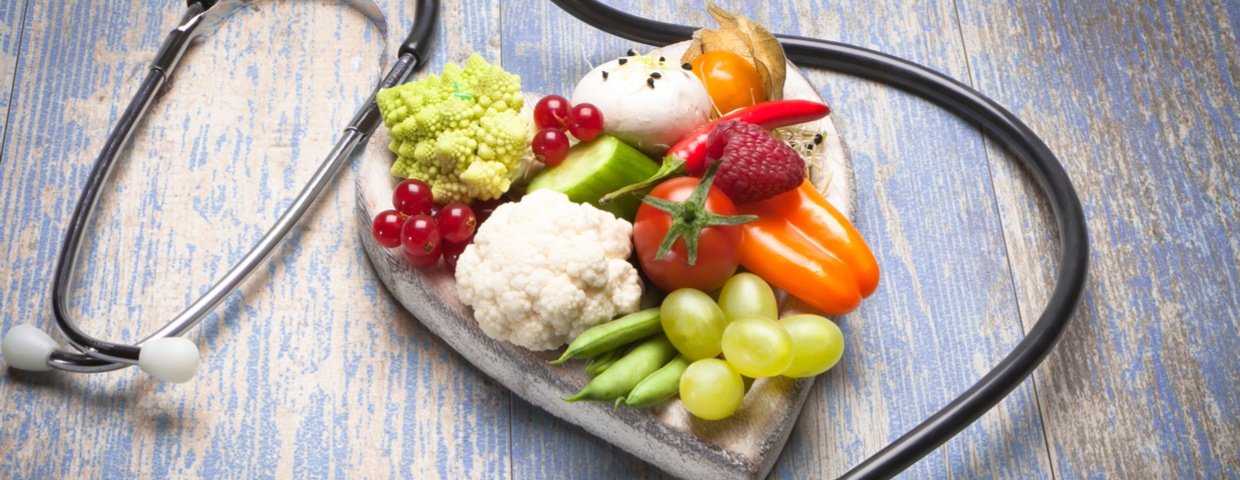Posted by Heart Hugger on Nov 1, 2023 9:59:00 AM

The road to recovery following cardiac surgery can feel long and daunting. However, maintaining an optimal diet will provide the essential nutrients needed for healing. What you eat makes a major impact on your rehabilitation journey. Follow these dietary guidelines to fuel your body through mending after heart procedures.
Fill Up On Fruits and Vegetables
A diet rich in produce is vital post-surgery. Fruits and vegetables deliver key vitamins, minerals, antioxidants and fiber that facilitate the body's natural healing abilities.
Aim for a wide rainbow of colors on your plate to gain diverse nutritional benefits. Deeply pigmented fruits and vegetables are particularly great for heart health. Enjoy:
- Berries like strawberries, raspberries and blueberries. Their anthocyanins protect cells from damage.
- Tomatoes, with inflammation-reducing lycopene.
- Leafy greens such as spinach, kale and broccoli. They provide vitamins A, C and K.
- Citrus fruits, packed with vitamin C and potassium.
- Beans and legumes for plant-based protein, fiber and nutrients like folate.
- Potatoes, yams and winter squash contain blood pressure-regulating potassium.
- Avocados offer healthy monounsaturated fats to balance cholesterol levels.
Consult with nutrition specialists on how to incorporate a rainbow of produce into your post-op eating plan. Aim for at least 4-5 servings per day.
Choose Lean Proteins
Protein foods should also be included in a balanced recovery diet. Seek out lean and plant-based options like fish, poultry, beans, nuts and low-fat dairy products.
Fatty fish varieties like salmon, tuna, mackerel and sardines provide omega-3 fatty acids that benefit heart health. Aim to eat fish at least twice weekly. Bake, grill or broil it instead of frying.
For poultry, choose lean cuts of chicken and turkey. Remove skin before cooking by healthier methods like roasting, grilling or stewing in broth. Limit red meat intake to occasional lean cuts.
Incorporate plant-based proteins like beans, peas, lentils, nuts and seeds. Their fiber content aids fullness and digestion. Low-fat or nonfat dairy products also offer protein without excess saturated fats.
Select Nutrient-Rich Whole Grains
When choosing carbohydrates, opt for whole grains like oats, brown rice quinoa, bulgur, barley and 100% whole wheat breads and pastas. They deliver bountiful fiber, B vitamins, magnesium and other nutrients.
Limit refined grains found in sweets, pastries, white bread and crackers. They provide empty calories and can spike blood sugar levels. Replace refined baked goods with wholesome whole grain versions.
Follow Your Physician's Post-Op Diet Orders
In the initial recovery period, doctor's orders rule. They will guide you on when to resume normal meals versus sticking with smaller, frequent portions to manage low appetite.
Notify your care team of any pre-existing food intolerances, allergies or sensitivities requiring accommodation. Customizing your nutrition plan is key. Don't hesitate to ask questions to understand the guidelines.
Follow physician instructions faithfully during recovery for optimal healing. As the weeks pass, transition to a largely plant-based diet with lean proteins, complex carbs and healthy fats.
The Importance of Lifestyle Adjustments
Nutrition is just one aspect of rehabilitation. Regular exercise, once medically cleared, also facilitates mending. Start with short, gentle sessions like walking, swimming or cycling. Slowly increase duration and intensity under doctor supervision.
Additionally, make sure to schedule dedicated rest periods between activity. Listen to your body's signals. Pain or fatigue means it’s time for a break. Don't overexert yourself.
Cardiac rehab programs provide professional guidance on appropriate exercise tolerance and progression. Attend all appointments for optimization during your transition back to normal activity levels.
Take Extra Precautions With Diabetes
Diabetic patients require special care as surgery wounds heal. Due to higher blood glucose levels, they have increased susceptibility to infections that could necessitate further treatment.
However, medical devices like sternum support belts exist to aid safe, effective healing for diabetics after heart surgery. These belts gently stabilize the breastbone as it mends, reducing pain and improving breathing capacity.
Sternum support is lightweight, adjustable and affordable. Ask your medical team about obtaining this assistive device during your post-op recovery to minimize risks of complications.
Build a Circle of Support
Expect ups and downs along the winding path to full recovery. Some days will feel smooth while others prove tiring. Maintain a long-term focus on consistency with lifestyle adjustments surrounding diet, activity levels, and proper medical support.
Share the journey with loved ones who can provide home cooked heart-healthy meals, transportation to appointments, and moral support during the challenges. Join support groups to feel inspired seeing others recover too.
Stay the course. Communicate with your care team. You've got this! A strong spirit and commitment to self-care will carry you through to healed and happy post-surgery heart health.
Choosing the right kind of dairy and limiting your carbs is good for your heart. Your doctor will prove instrumental when it comes to designing a healthy diet. Fitness programs work hand-in-hand with eating right. They work to strengthen the heart and promote overall health. Adopting the right habits will help with recovery and better health choices in the future.
